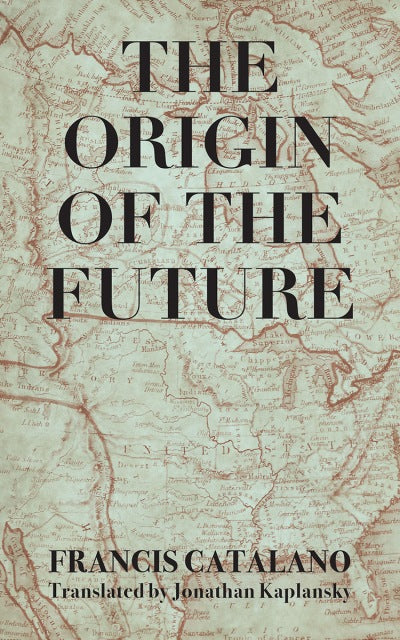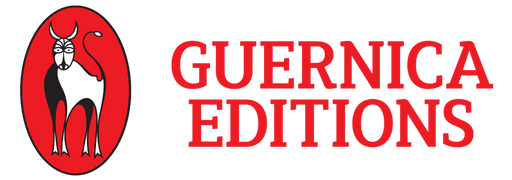The Origin of the Future
The Origin of the Future
By Jonathan Kaplansky Francis Catalano
The not-often seen together combination of poetic writing interspersed with historical events and modern-day occurrences with a view to the future marks Francis Catalano’s work as noteworthy. Québec’s past is vividly imagined, and The Origin of the Future reveals the author’s background as a poet as he creates a kind of road trip partway between an essay and a novel. The narrator looks for what has come before him, what has shaped him. There is authenticity in this eclectic mixture of the present day and history, and courage in forging new territory to create an unusually original work.
The central figure of The Origin of the Future is North America. It talks about the origins of the continent: geological (before human beings), human origins (migration of people from Asia), colonial origins (the arrival of Europeans) and the origin of the author's own presence in North America. Catalano lends his voice to his ancestors, to his Italian grandfather, to his son … who speak through him to tell their little story in America while History is told using a more enigmatic or poetic text, between each chapter. Then come the great outdoors of America, migrations, road trips, family.
Details
Details
Guernica Editions (Essential Translations)
978-1-77183-949-5
250 pages |
Couldn't load pickup availability
Reviews
Reviews
Learn More
Learn More
Awards
Awards

About the author
Jonathan Kaplansky is a literary translator of French in Montreal and won a French Voices Award to translate Nobel Prize winner Annie Ernaux’s Things Seen and was shortlisted for the David Booth Award for Jonathan Bécotte’s Like a Hurricane. He has also translated works Hélène Dorion, Lise Gauvin, Louis- Philippe Hébert, Hélène Rioux and Lise Tremblay.
Poet, novelist, short story writer and essayist born in Montreal, Francis Catalano won the Quebecor Prize of the Trois-Rivières International Poetry Festival for Qu’une lueur des lieux (2010) and the La Métropole Prize of Excellence for Climax (2022). As a translator of Italian poetry, he won the John Glassco Prize in 2006 for Instructions pour la lecture d’un journal de Valerio Magrelli.

